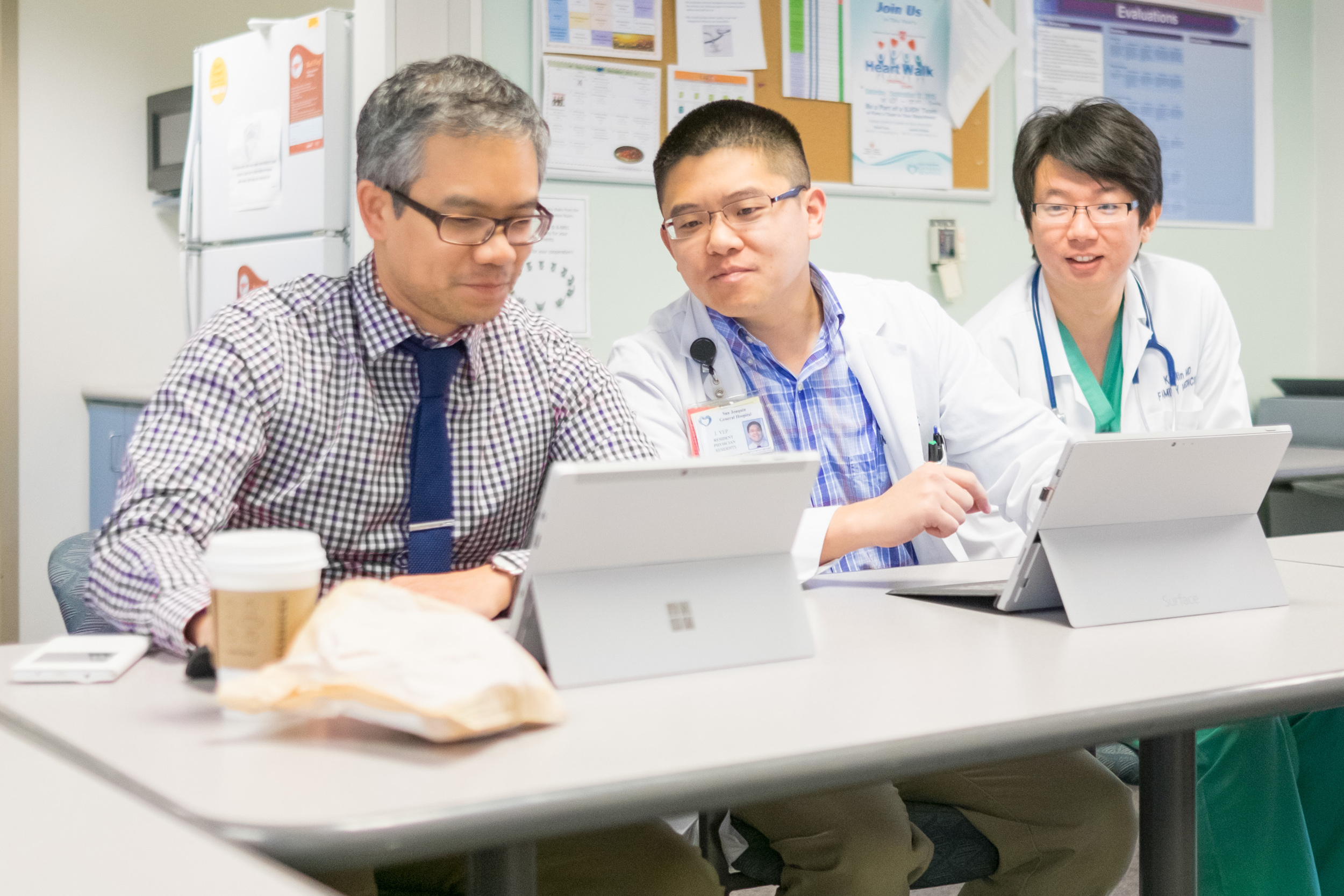Didactics
Our family medicine program provides a wide range of academic programs to supplement the diverse clinical training experiences of our residents.
Wednesday afternoon
Protected Wednesday afternoon didactics are held every wednesday afternoon. The curriculum for didactics are largely resident driven, with residents teaching on high-yield family medicine board topics. Didactic are also provided by faculty and sub-specialists. In addition to lectures, this protected time also serves as a platform for residents to present patients who have been recently admitted to the inpatient service or any interesting clinical cases. During case discussions lead by faculty, residents are encouraged to incorporate relevant evidence-based medicine resources into their own practice. Family medicine clerkship students and those auditioning are also active participants during morning report.
Jeopardy: Each month, we review what we have learned in the AAFP Essentials in an exciting game of Jeopardy. Our residents and medical students split into 3 groups to see who can answer the most correct questions without busting the bank to review important topics in family medicine.
2-minute-2-slides: Each year, during the beginning of the academic year, all of the residents showcase their most interesting case in a "2-minute-2-slides" presentation during morning report to welcome the new intern class.
Noon conference
Noon conferences are held from noon to 1 PM every weekday.
Journal club: Once a month, we have journal club. Under the guidance of our attendings, we discuss methods for analyzing, interpreting, and presenting original data published in medical journals. The journal club participants consist of a team with one senior and one junior resident. We use a standardized evaluation tool to assess presentation content and delivery. In addition, we also have a statistician that can be contacted to help guide analysis of the journal article being presented.
Quality improvement: Every month, our department holds a meeting where our residents are assigned to present a case and discuss aspects for improvement as part of our continual practice-based learning core competency. Cases are chosen by our attendings or the residents.
Conferences
Our residents are encouraged to go to conferences to explore their medical interests or to present poster presentations on interesting cases or research done here at our hospital. Our residents are strongly supported by our faculty to be active in the field of family medicine by promoting their knowledge as well as new and interesting clinical scenarios encountered in their training.
Family Medicine Board Review
Each year, our family medicine PGY-III residents help to decide what their class wants utilize to help them prepare for their board certification examination. For the past few years, the PGY-III class choose to utilize the UCSF family medicine board review course. The board review course as well as accommodations are provided our program at no additional cost to the residents. Throughout the year at our residency program, we actively learn from the AAFP self-study course under the guidance of our chief residents during conferences. In addition to our yearly in-training examination, we take mock in-training examinations as well to prepare us to pass our boards.
Certifications
Our residents are required to hold several certifications, which our program will initially pay for with subsequent renewals up to the residents to maintain. This includes the following which is taught at SJGH: Basic Life Support, Advanced Cardiac Life Support, Pediatric Advanced Life Support, and Neonatal Resuscitation Program. In addition, we pay for our residents to attend Advanced Life Support in Obstetrics to prepare our interns for obstetrics at an off-campus location near the UC Davis Medical Center.



